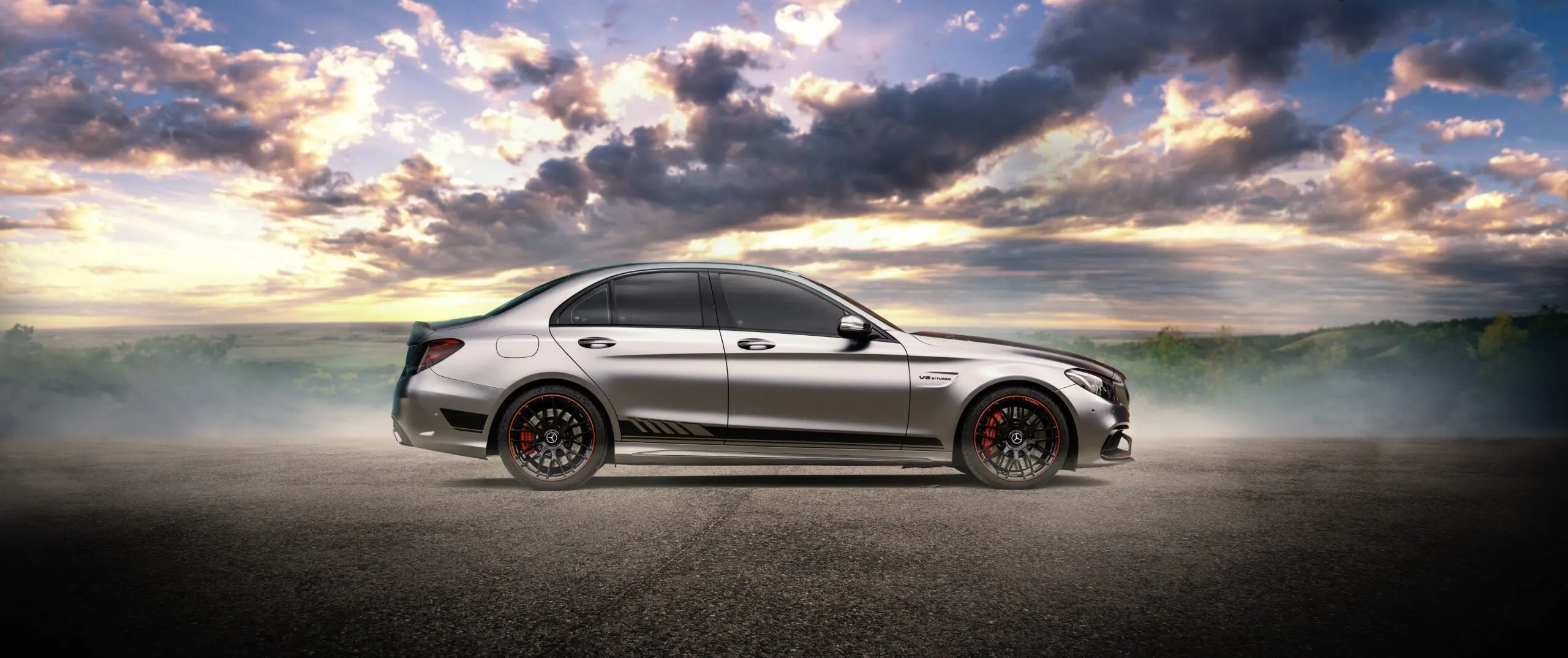It’s surprising to find that fewer individuals are opting to utilize vehicle wraps nowadays. Especially given the fact that a wrap can make it a fairly simple process to completely or partially modify the color of your car. Additionally, it's a fantastic way to add all kinds of graphics and visuals without having to manually paint them in, or you can hire an expert to install the wrap.
A car wrap is comprised of several large vinyl decals on your car's hood, doors, fenders, roof deck, and bumpers. When applied correctly, it will protect your paint and is completely customizable as well. Similar to paint, wrap material comes in various shades and finishes.
Wrapping your car has several advantages beyond just giving it a gorgeous exterior. The paint and Gelcoat layer underneath is safeguarded if the car is used only for personal purposes. Its benefits multiply if you have it wrapped in a strong, noticeable advertisement to enhance sales. You cannot, however, simply purchase any wrap. You must buy the product that best fulfills your needs and matches your style
Wraps Direct has created this comprehensive guide to assist people looking to turn their precious vehicle into a true head-turner but finding the ideal vinyl wrap from the several great options available has proven to be a difficult process. In addition to their apparent visual advantages, car wraps are very versatile. As a result, there are numerous alternatives. Let's look through some of the more popular car wraps that are available right now.
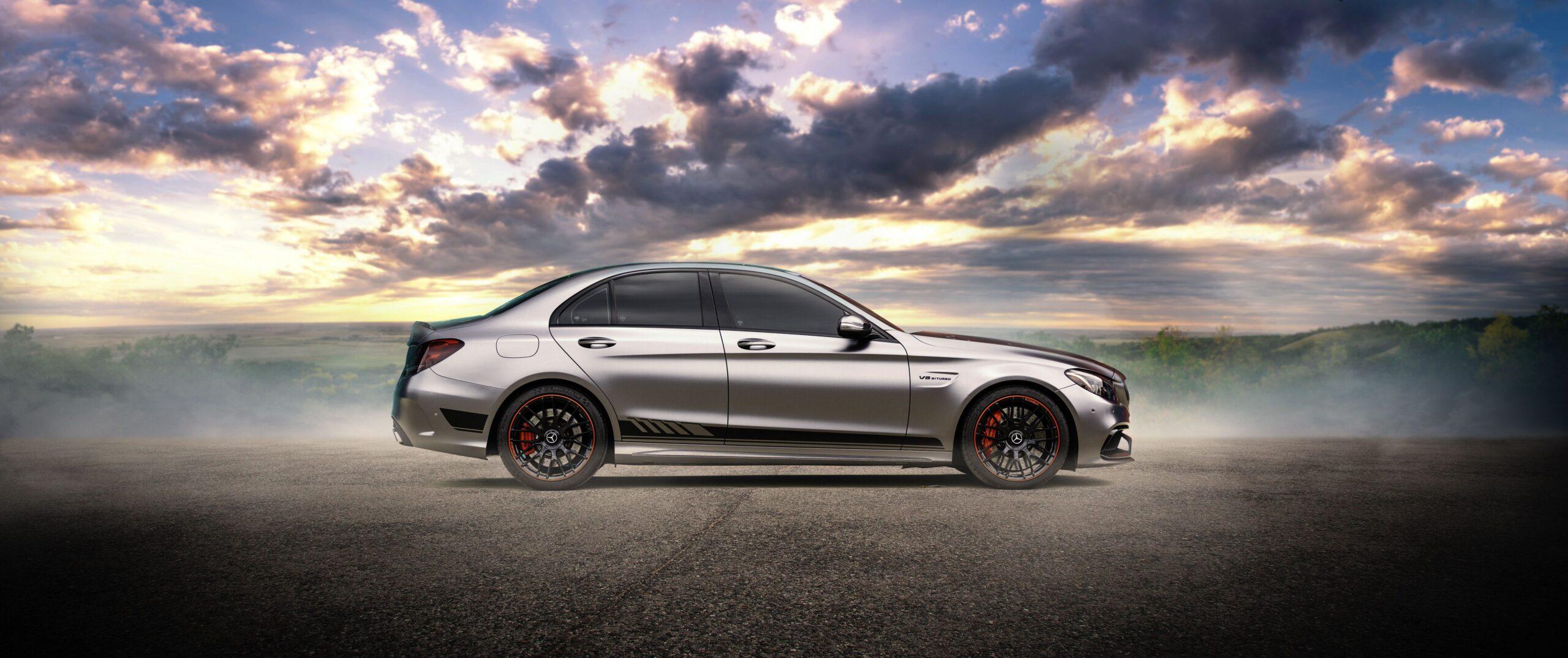
Full Coverage Car Wraps
The name speaks for itself quite well. A complete wrap covers the entire car, entirely altering its color and appearance. Most frequently, a solid color is used to accomplish this. Not only is it less expensive than a full paint job, but it can also be undone entirely. It's referred to as a "full-color change wrap." Even a full wrap that matches the color of the car below is often used. Why do you inquire? Obviously, to shield the car's actual finish from tiny dings and scratches. This is referred to as a "protective wrap." Although full vehicle wraps are more costly than partial wraps, they are the quickest option to alter a vehicle's complete exterior. Some folks don't genuinely wish to change the overall appearance of their car permanently. Some people find it quite enticing to have the option to easily change their mind and return to the original hue.
Partial Car Wraps
Partial wraps, as you can infer from the name, only completely encircle a portion of the car. While a complete wrap could attract more attention, not every individual wishes to do that. A partial wrap can be a wonderful option if you want to get a more subdued impact or if you simply don't want to drastically alter the appearance of your car. When you're promoting something with your covered car, partial wrapping might be just as efficient. If the car itself is noteworthy in some way, using a partial wrap will be acceptable in particular. Anything that draws attention will ultimately have the same aim. Partially wrapping the roof, hood, doors, and/or trunk is a frequent practice. All of them provide great flat (almost) surfaces for additional imprinting.
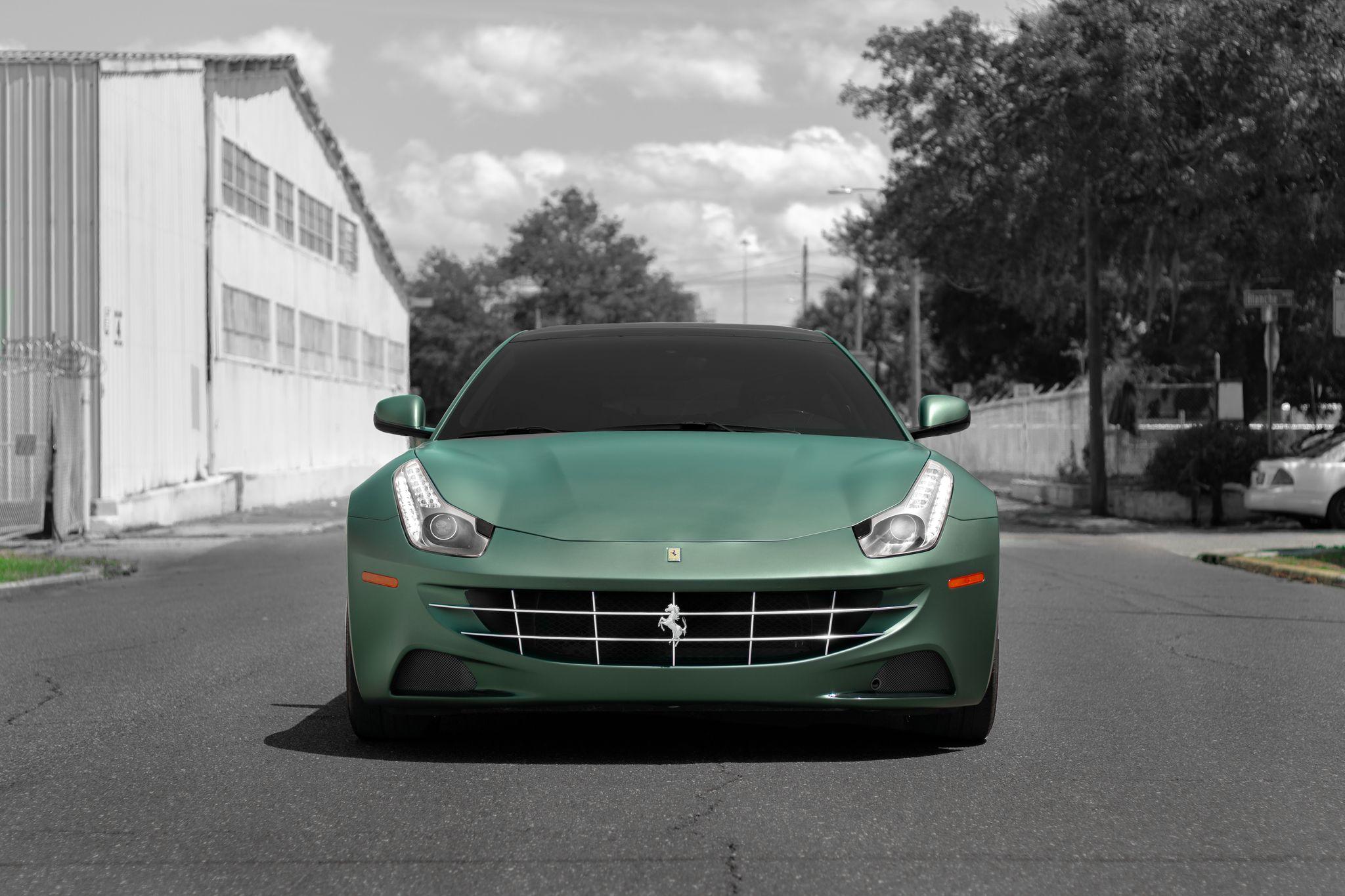
Film Car Wrap Paint Protection
Paint Protection Film, often known as a transparent bra, is a heat-activated top coat and an ultra-thin polyurethane with self-healing properties. Its major goal is to keep what is underneath in good shape. Since it is translucent, it does not detract from the appearance or hide the magnificent sheen that is being displayed. In actuality, it shields the car from damaging elements. Due to its excellent conformability, paint protection film can readily cover any challenging curves and features in a vehicle. All components of a vehicle—bumpers, lights, wing mirrors, and wheel flares—are neatly sheathed.
Vinyl Car Wrap Material Types
Which vinyl texture and hue best captures who you are and is your all-time favorite? Do you prefer to live a life that is mysterious or one that is flashy and ostentatious? Do you think outside the box and characterize yourself as "handcrafted" or do you exude serenity and stability? Every personality can choose a record that will satisfy their aesthetic tastes and conform to their idea of beauty.
There are various distinct types of car wraps, each having its pros and cons. The major types of car vinyl wrap material textures, as well as their advantages and disadvantages, are covered below.
Chrome Vinyl Car Wraps
Car owners who wish to give their vehicle a spectacular appearance with a mirror-like, gleaming surface might consider chrome covers. The primary benefit of this style of wrap is, unsurprisingly, its flashiness, which can showcase your automobile by giving it an upscale finish that appears completely original.
- Obviously, the distinctive, glitzy chrome appearance.
- Can successfully protect the paint and interior elements of the car.
- Laminate provides some scratch and chip protection.
- Can last for at least five years with regular maintenance.
- Because they reflect sunlight, chrome wraps can significantly reduce the warmth of your interior.
- Applying is a pain. A superb chrome wrap takes significantly longer to install than other types.
- Chrome wraps are much heavier than other varieties and do not easily stretch.
- Stress lines may form on chromium wraps of low quality.
- On chrome wraps, the lifting of corners and any air bubbles that inflate will be more noticeable.
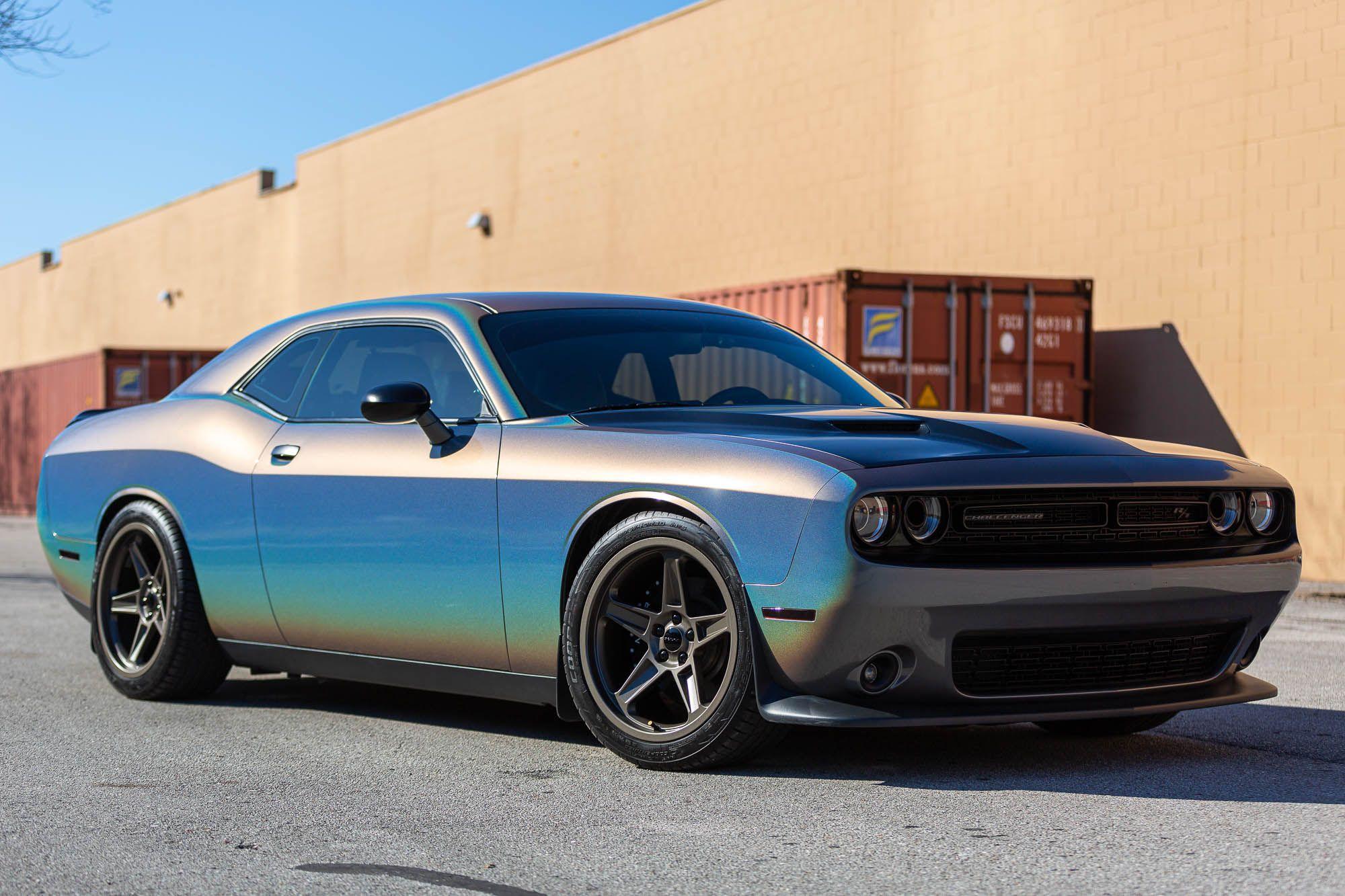
Carbon Fiber Vinyl Car Wraps
Carbon fiber is typically used as an alternative to metal materials because it is strong, lightweight, and very durable as it is knitted together from strong carbon strands. The carbon fiber material initially lacks hardness and requires the addition of epoxy or resin to transform it into a solid, metal-like substance that is extremely durable while retaining its low weight. In other words, a carbon fiber wrap is a technique for covering a vehicle in carbon fiber. It's vital to understand that a carbon fiber wrap involves just the wrapping of the existing body with carbon fiber rather than replacing your car's entire body with carbon fiber (although that is an option). In order to give your automobile the carbon-fiber look without spending a ton of money on rebuilding the entire body, carbon fiber wrap is primarily a great choice and is more so about aesthetics, not functionality.
- May substantially enhance the looks of your car, giving it a carbon-fiber appearance for a lot less money than the "genuine" thing.
- Can successfully safeguard the car's bodywork and interior paint.
- Allows for a much easier and less time-consuming way to clean the surface of the car, while also being much more affordable.
- Air bubbles may arise beneath the shiny layer of the wrap.
- Very difficult to apply, so an expert's assistance is more than likely needed for installation.
- Despite the wrap substantially resembling the "genuine thing," individuals may be able to tell the difference when up close to the car.
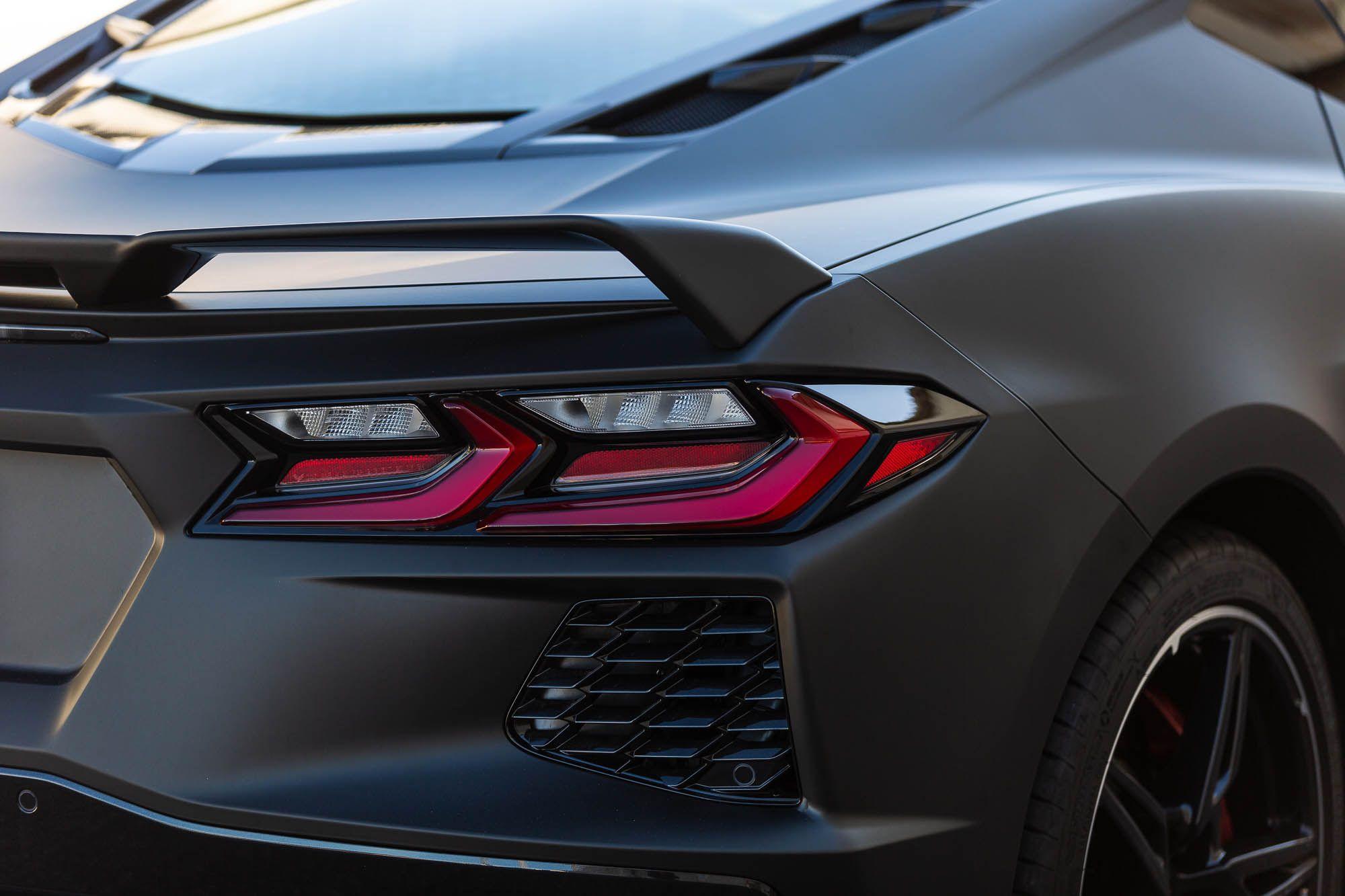
Gloss Vinyl Car Wraps
Gloss wraps are the most coveted and well-liked vinyl. Glossy vinyl is the preferred choice among auto enthusiasts because it is the simplest to install and requires little effort when done at home. Gloss wraps give your car a shiny, wet appearance. As a result, your car acquires a rich, classic finish that makes it appealing and a guaranteed eye-catcher.
- Simplicity; gloss wrap is the easiest material application for beginners.
- Most common and popular, being that it’s the closest resemblance to a brand new shiny paint job.
- Can be applied to provide additional protection for the car’s surface area.
- Some gloss vinyl wrap material is manufactured very cheaply, so it is important that you buy top-of-the-line gloss vinyl from a highly trusted vinyl wrap company.
- Can begin to peel around the edges, and becomes more difficult to fix as time goes on.
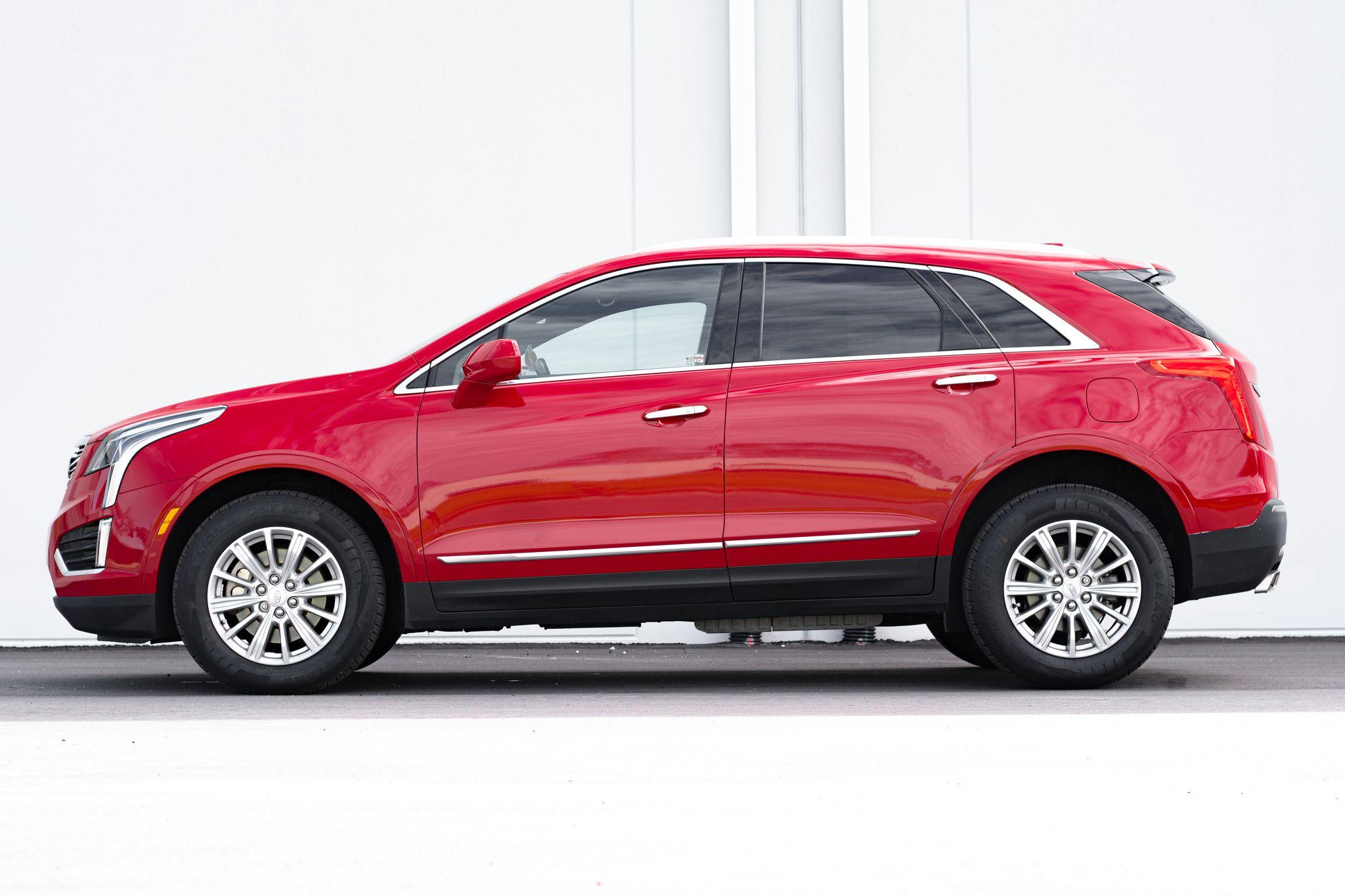
Satin Vinyl Car Wraps
Satin Vinyl wrap is the right choice for you if you want to project a stylish and elegant appearance. It isn't excessively subdued nor is it overly sparkly. It has exactly the proper amount of rich, quasi-finish with a silky-like texture that mimics a metal-plated or chrome-ified look, which is sure to leave an impressive regal impact on spectators. This satin-wrapped look will make you feel as though your vehicle is coated in velvet. Satin wraps can be viewed as a sort of midpoint between matte and gloss surfaces. People who want a matte finish but yet want a light gloss or shine applied to their car frequently choose this style of wrap.
- Preferred because it creates a distinctive appearance and has a texture that falls somewhere between matte and gloss.
- Due to its distinctive textures, your car will be sure to stand out from the crowd.
- Similar to matte wraps, it still draws attention to the car's edges and curves, but it also adds some shine for a more upscale appearance.
- Maintenance is challenging since silicone and wax can erode the matte layers on the car, causing the wrap to swell.
- Pressure washers are ineffective at cleaning this and should be avoided at all costs to maintain a fresh appearance.
- Due to its mildly modest, in-between appearance, it might occasionally be bland and fail to attract attention.
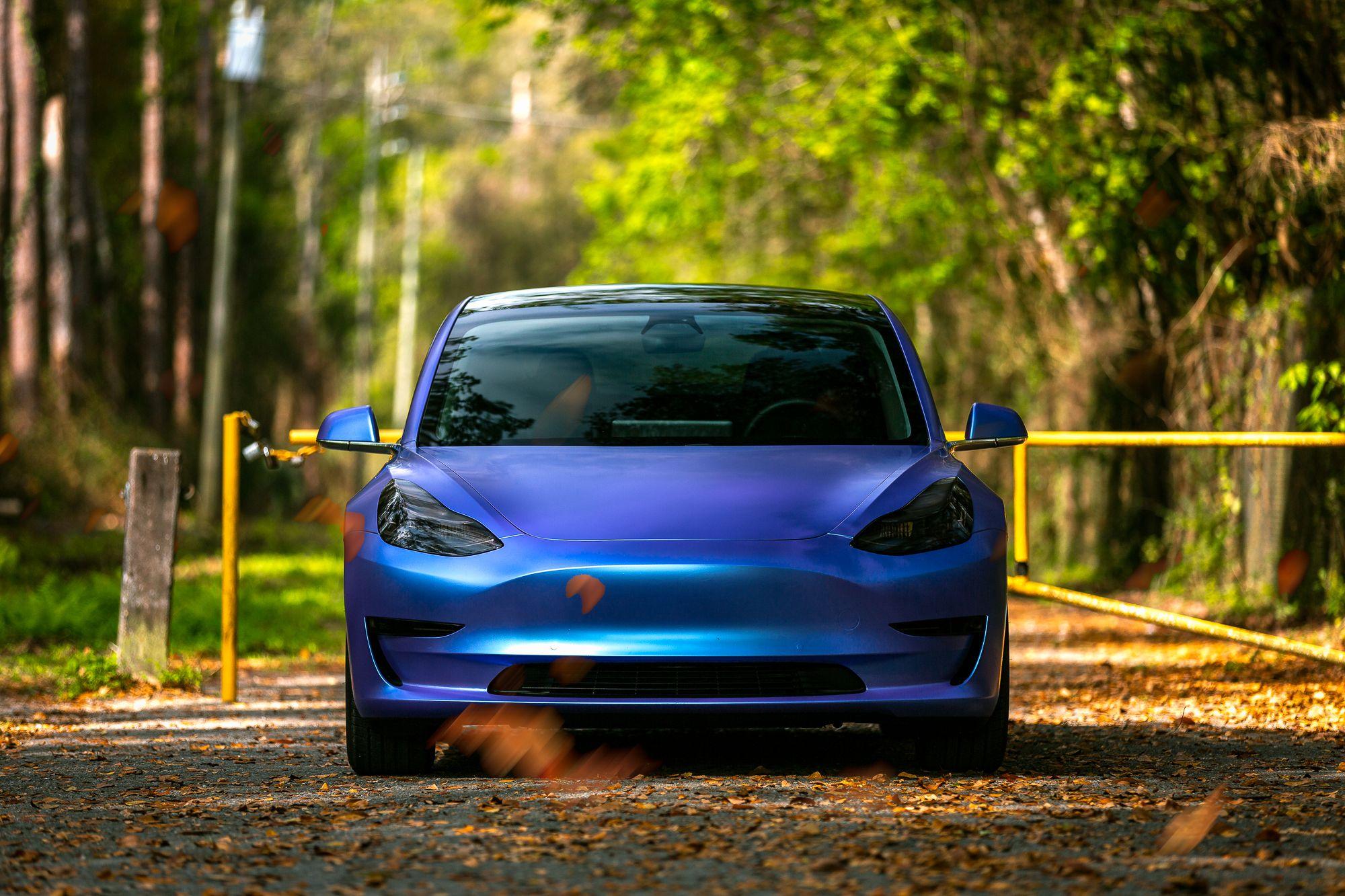
Metallic Vinyl Car Wraps
Envision a beautiful piece of polished metal that is sparkling brightly in the sunlight and grabbing everyone's attention. This is how metallic vinyl wrap works. Unlike gloss vinyl, it provides cars with a stunning shine. It contains tiny metal flakes that, when combined with magnetron sputtering, enable high transmittance, letting your car shine brilliantly like a gem. The metallic vinyl option is the greatest alternative for people who want their vehicle to have a magnificent, opulent aesthetic while providing premium protection performance is a metallic vinyl wrap. You may acquire the ideal finish for your vehicle, enhancing its uniqueness and personalizing it with a wide range of colors available at Wraps Direct.
- Great choice if your desire is to give your car a brilliant glistening metallic color while still preserving the beneath paintwork.
- Your car is instantly transformed by the shimmer it adds, making it more appealing and eye-catching.
- The luxurious shine it produces instantly transforms your car, making it more desirable and noticeable.
- Given its high levels of shine and reflection, if bubbles do arise beneath the wrap layer, they may be more pronounced due to the glistening effect.
- If scratches become prevalent, over time, they may become more noticeable because of the mirror effect, so it is highly suggested that you get it repaired as quickly as possible.
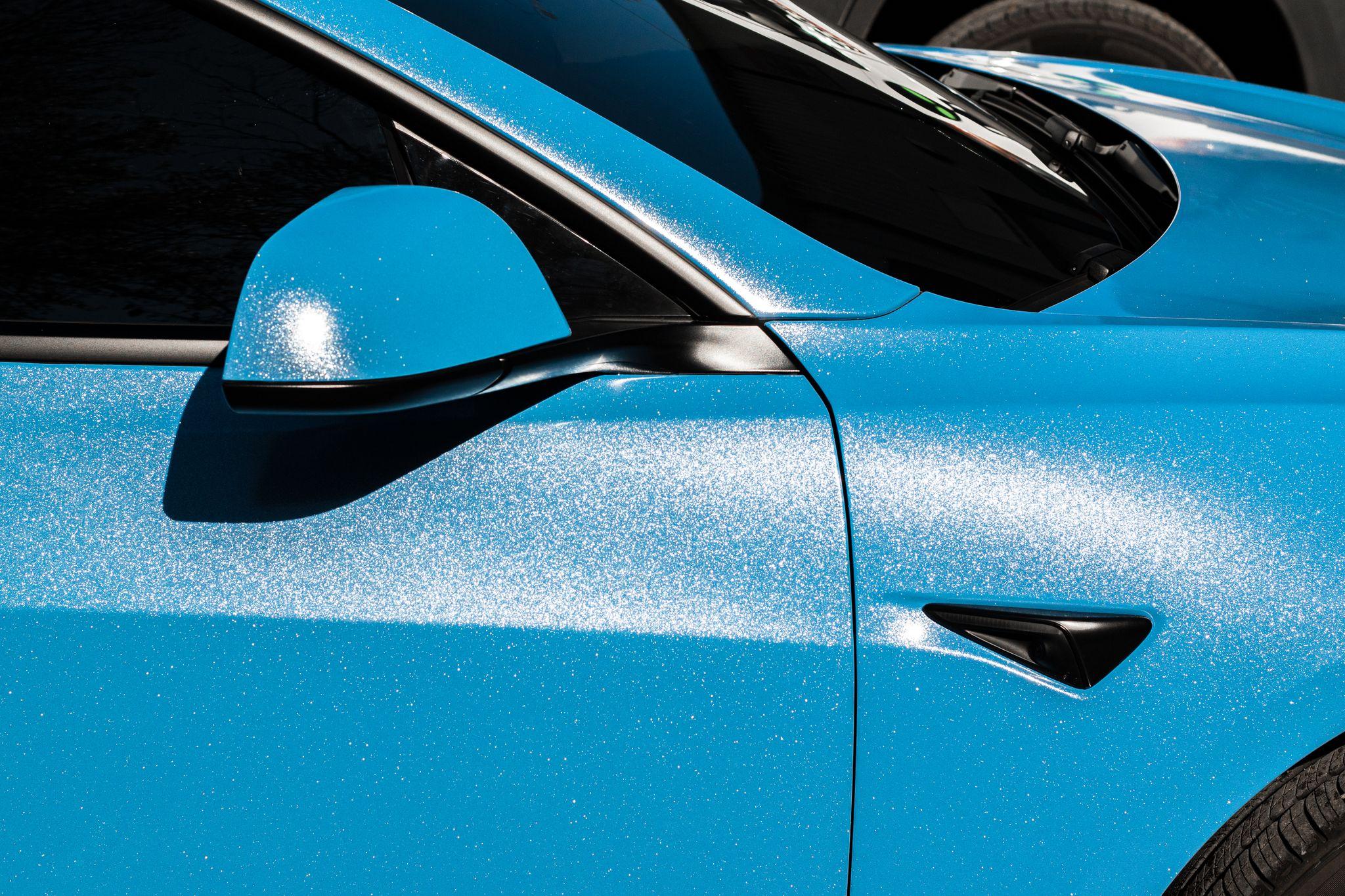
Matte Vinyl Car Wraps
As the name implies, matte wraps can give your automobile a trendy, less reflective appearance. Matte wraps emphasize the opposite with a flattened or "softer" overall appearance, in contrast to other wraps and finishes that frequently stress glossy, dazzling features. When your car has a shiny finish, it may be difficult to see body features and curves, but a flatter, matte finish wrap can better highlight them.
- Can successfully cover dents (if not all the way to the primer or sealer).
- They can conceal flaws in the carbon layers and body because they absorb more light.
- Scratches that can't be removed with good buffing could cause the car's true finish to change.
- Could possibly begin to give off a powdery appearance.
- Smudges, oils, sweat, and dirt may be more noticeable and require more upkeep to appear clean.
- Lack of overall color depth.
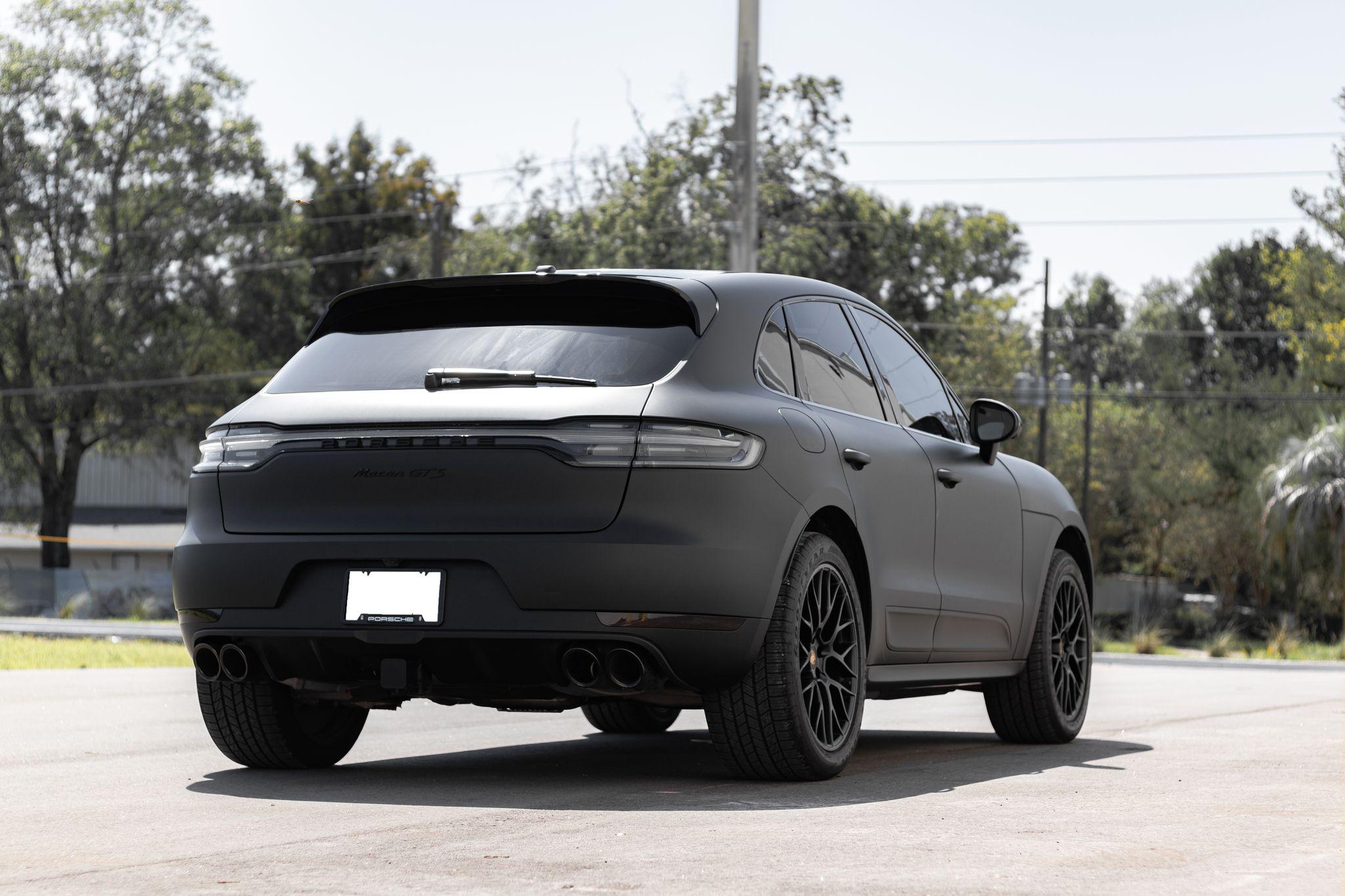
Avery Vinyl Car Wrap vs. 3M Vinyl Car Wrap
When searching for the ideal wrap for your beloved car, 3M and Avery are two of the most well-known, widely recognized manufacturers in the market. However, deciding between the two can be difficult because each of them has different advantages and disadvantages, making it difficult to compare them. To help you choose between the two brands, consider the following benefits and drawbacks of each:
Avery Vinyl Car Wrap
- Outstanding performance.
- Decent level of toughness.
- Avery has specifically patented an easy-to-use adhesive technique, making it better suited for applications by beginners.
- Features a colorful film layer acting as protection.
- Convenient one-piece design.
- Depending on the type of wrap, specific installations can be exceedingly difficult.
- Due to their relatively reduced color selection, Avery does not carry all hues.
- More susceptible to extreme weather conditions such as hail, rain, heat, etc.
3M Vinyl Car Wrap
- A wide range of color and design options.
- New designs for specific wrap types.
- Weather-proof.
- A sticky wrap-down without bubbles.
- Updated technology and adhesive chemistry that are reliable given that it is specifically 3M patented.
- Somewhat more challenging for a beginner to apply, so it is suggested that you find a professional to install a wrap of this brand type.
- Without proper care, things are easily broken.
- Comparable price increases.
Calendared vs. Cast Vinyl Car Wraps
Composites are often even those constructed from different materials. As a result, you should be aware that there are two varieties of vinyl: calendared and cast.
Calendared vinyl is created by using pressure and heat, and it is far less expensive than casting. However, given the fact that it isn't found to be as strong, it usually has a thicker consistency. Despite this issue, calendared vinyl is typically the more popular option. It's just significantly less expensive than the other options.
Cast vinyl is as you would anticipate. It has been printed with the color or design that its creator has chosen after being cast in a mold. Cast vinyl vehicle wraps can achieve the same durability with less material and are more resilient and stronger than this sort of plastic on average. As a result, they are typically thinner than vinyl-calendared products. They are significantly more flexible as a result, which can greatly aid them in covering confined and irregular regions.
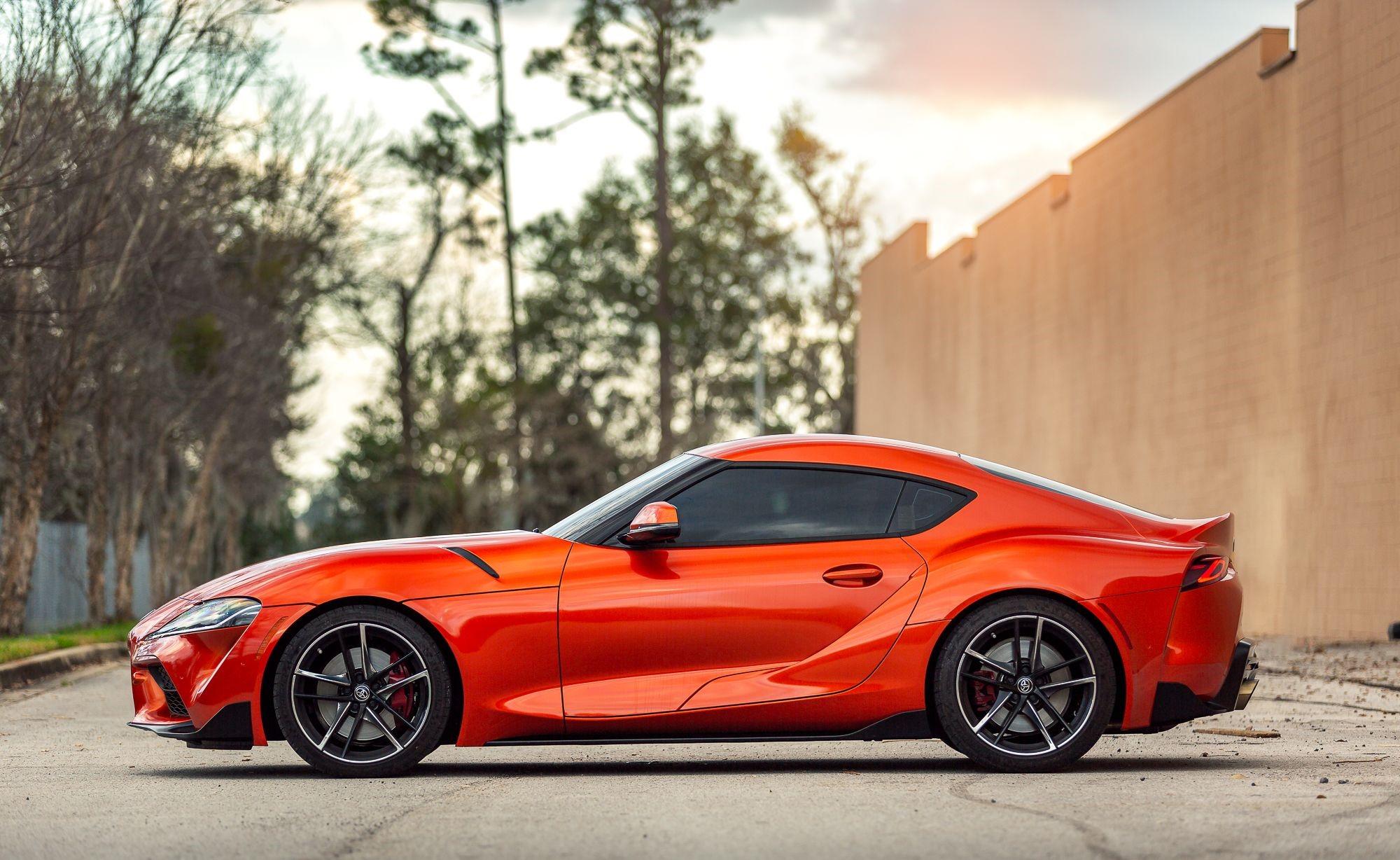
Conclusion
Here at Wraps Direct, we provide a broad selection of the finest quality for both full-body car wrappings and partial car wraps in a wide spectrum of colors and finishes. Any RGB, HEX, CMYK, or Pantone color hue you require can be successfully matched by us.
Our vinyl wraps include adhesive on one side and a protective laminate layer on the other that covers the desired surface area. Since they are flexible, they flawlessly cover all your curves and contours and are incredibly simple to use. Our most durable vinyl can survive the harshest of environments and offers top-notch protection against the Sun's damaging UV rays, scuff marks, small scratches, and all other sorts of deterioration. It is also nice given that it is super simple to maintain and clean.
Located in Jacksonville, FL, Wraps Direct provides nationwide shipping and installation services for vinyl wrap across the continental United States! So, if you're looking to find a vinyl wrap material that is the best fit for your car, call Wraps Direct at (904)-579-3452 or visit our website to book a free car wrap quote consultation today!
